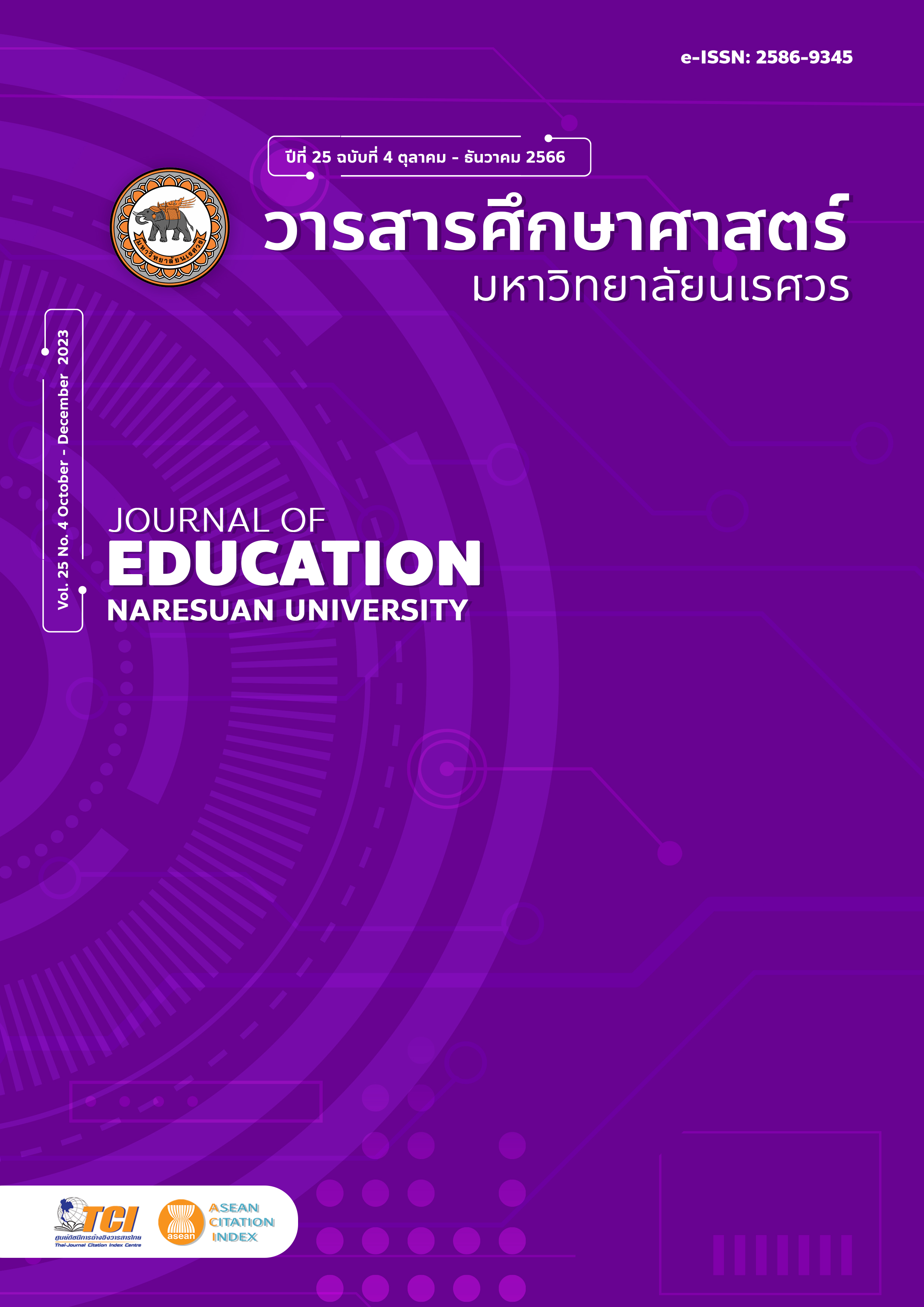THE STUDY OF ABILITY TO LEARN MATHEMATICS ON POLYNOMIAL OF MATHAYOMSUKSA TWO STUDENTS BY ASSESSMENT FOR LEARNING
Main Article Content
Abstract
The purpose of this research was to study the ability to learn mathematics on Polynomial of Mathayomsuksa two students by assessment for learning. The sample was 45 Mathayomsuksa two students of one classroom at a special-large school in Bangkok selected by cluster random sampling from 15 classrooms. The research instruments were 11 lesson plans on Polynomial, assessment for learning form, quizzes on Polynomial, and mathematics learning achievement test on Polynomial. The quantitative data were analyzed by using percentage, mean, standard deviation and t-test statistics. The qualitative data were analyzed by using content analysis. The results of the research that study the ability to learn mathematics were as follow: (1) the mathematics achievement of students on Polynomial by assessment for learning was higher than 60% at the .05 level of significance; (2) regarding the performance results during the learning activities in the introduction process, activity process, and conclusion process, most students are good at answering questions and worksheets. Moreover, the most quizzes' scores at the end of the period were very good. The results of the feedback encouraged students to continue to develop.
Article Details

This work is licensed under a Creative Commons Attribution-NonCommercial-NoDerivatives 4.0 International License.
The owner of the article does not copy or violate any of its copyright. If any copyright infringement occurs or prosecution, in any case, the Editorial Board is not involved in all the rights to the owner of the article to be performed.
References
Berry, R. (2008). Assessment for learning. Hong Kong: Lammar Printing.
Black, P., & William, D. (1998). Inside the black box: Raising standards through classroom assessment. Phi Delta Kappan, 80(2), 139-148.
Bureau of Academic Affairs and Education Standards. (2014). Guidelines for measuring and evaluating learning outcomes According to the core curriculum of basic education, BE 2551 (4th ed). Bangkok: The Agricultural Cooperative Federation of Thailand. [in Thai]
Chookhampaeng, C. (2008). Learning assessment. Mahasarakham: Mahasarakham University Press. [in Thai]
Earl, L., & Katz, S. (2006). Rethinking classroom assessment with purpose in mind: Assessment for learning, assessment as learning, assessment of learning. Canada: Manitoba Education, Citizenship and Youth.
Mekwilaiphan, N. (2015). Assessment for learning in mathematics for mathayomsuksa 6 students at Bangplama Soongsumarnphadungwit School (Master thesis). Bangkok: Kasetsart University. [in Thai]
Pongsamal, P. (2010). The study of mathematics learning achievement of mathayomsuksa one students on “polynomials” by selected teaching strategies at Benjamarachatit School, Nakhon Si Thammarat (Master thesis). Bangkok: Kasetsart University. [in Thai]
Sangprateeptong, V. (2018). Guidelines for assessment of learning outcomes in the 21st century. Ubon Ratchathani Journal of Research and Evaluation, 7(1), 1-10. [in Thai]
Stiggins, R. J., Arter, J. A., Chappuis, J., & Chappuis, S. (2004). Classroom assessment for Student learning. Portland OR: Assessment Training Institute.
Thongwiset, P., Lertamornpong, C., & Chuntra C. (2019). The effects of organizing mathematics learning activities using active learning on mathematics learning achievement and mathematical concept on inequality of ninth grade students. Journal of Industrial Education, 18(2), 197-206. [in Thai]
The Institute for the Promotion of Teaching Science and Technology. (2012). Mathematics evaluation assessment. Bangkok: SE-EDUCATION. [in Thai]
The National Council of Teachers of Mathematics. (2007). Principle and standard for school mathematics. Retrieved April 13, 2021, from http://standards.nctm.org/document
Wongyai, W., & Patphol, M. (2020). Evaluation of learning in new normal. Bangkok: The Graduate School of Srinakharinwirot University. [in Thai]


